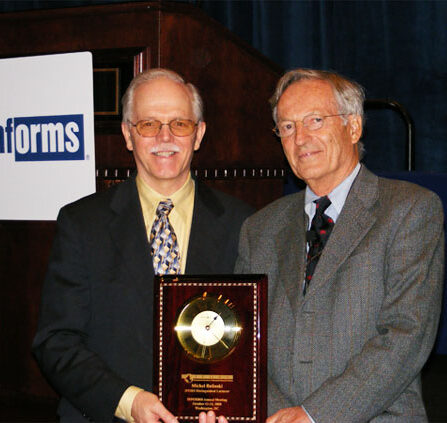Michel Balinski
Title of Presentation: One-Vote, One-Value: The Majority Judgement
Abstract:
Mechanisms of every imaginable type have been invented across the ages to designate the winners and orders of finish among competing skaters, wines, restaurants, universities, beauty queens …and political candidates. The traditional theory of social choice asks: how are the “evaluations” of voters or judges to be amalgamated into a decision of the electorate or jury? It answers: there is no good method (the Condorcet paradox, Arrow’s impossibility theorem, etc.). A new theory models the problem differently. Arrow’s theorem now says there is no satisfactory mechanism unless there is a common language of measuring the qualities or the performances of competitors. But when there is a common language – and practice shows they exist and can be defined – then one simple, practical mechanism that has been tested and applied should be used: the majority judgement.
Bio
Michel Balinski, a Williams graduate, studied at MIT and Princeton. He has taught at Princeton, Penn, CUNY Graduate Center, Yale and SUNY, Stony Brook. Since 1982 he has been Directeur de Recherche de classe exceptionnelle, CNRS and Ecole Polytechnique, Paris, and Director of the Laboratoire d’Econométrie (1989-1999). He was awarded the Lanchester Prize in 1965, and an honorary degree in mathematics from the University of Augsburg in 2004. He is the founding editor of Mathematical Programming and a past President of the Mathematical Programming Society. Dr. Balinski is the author of Fair Representation: Meeting the Ideal of One Man, One Vote (1982, reissued 2001, with H. P. Young) and Le suffrage universel inachevé (2004), and author or co-author of some one hundred scientific articles (OR, mathematics and other journals). His principal current interest is the theory and applications of ranking and the design of electoral systems. One of his electoral systems is used in Zürich, Switzerland.

